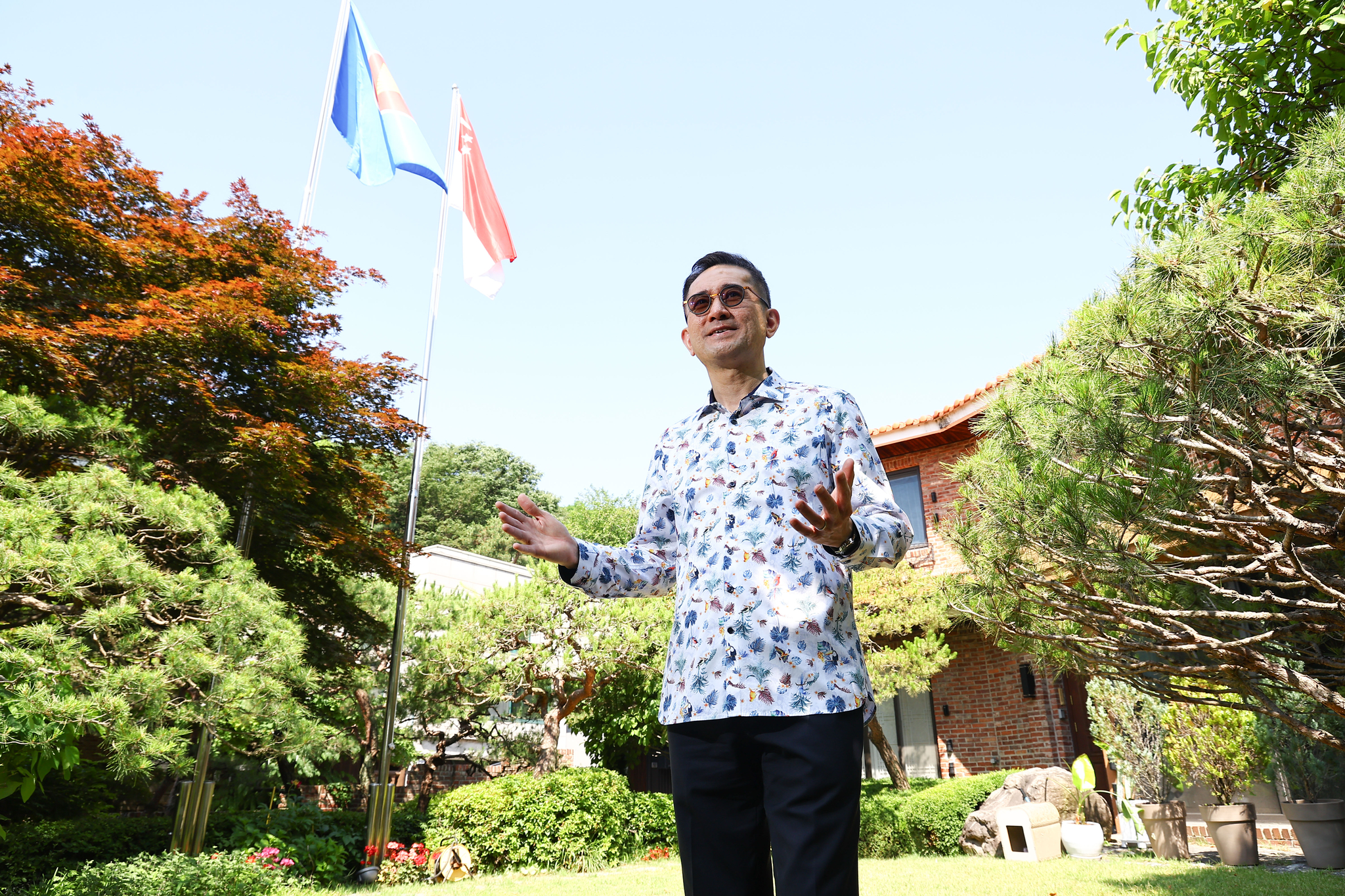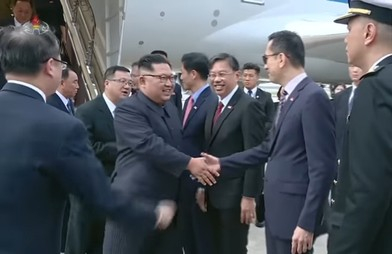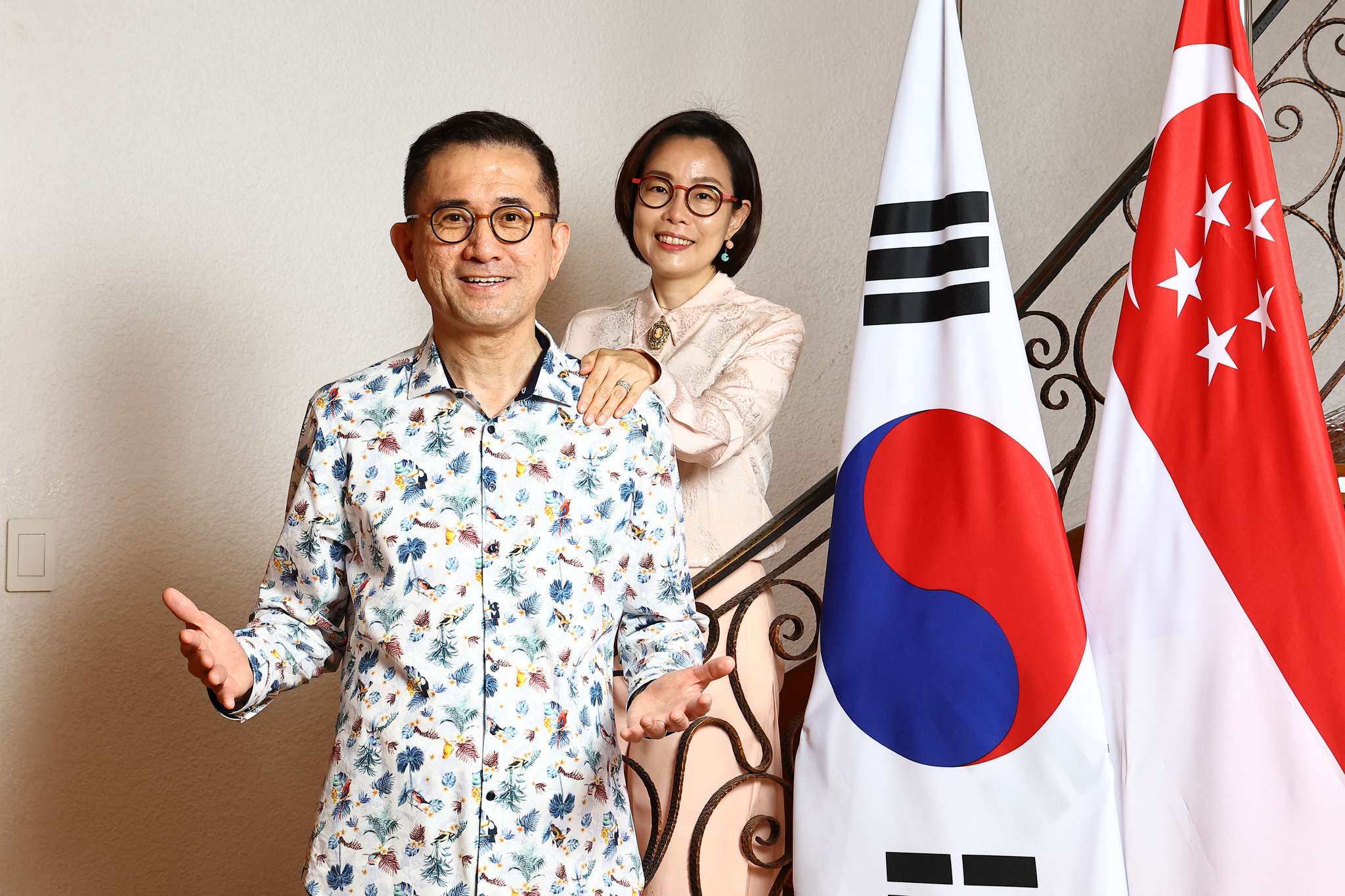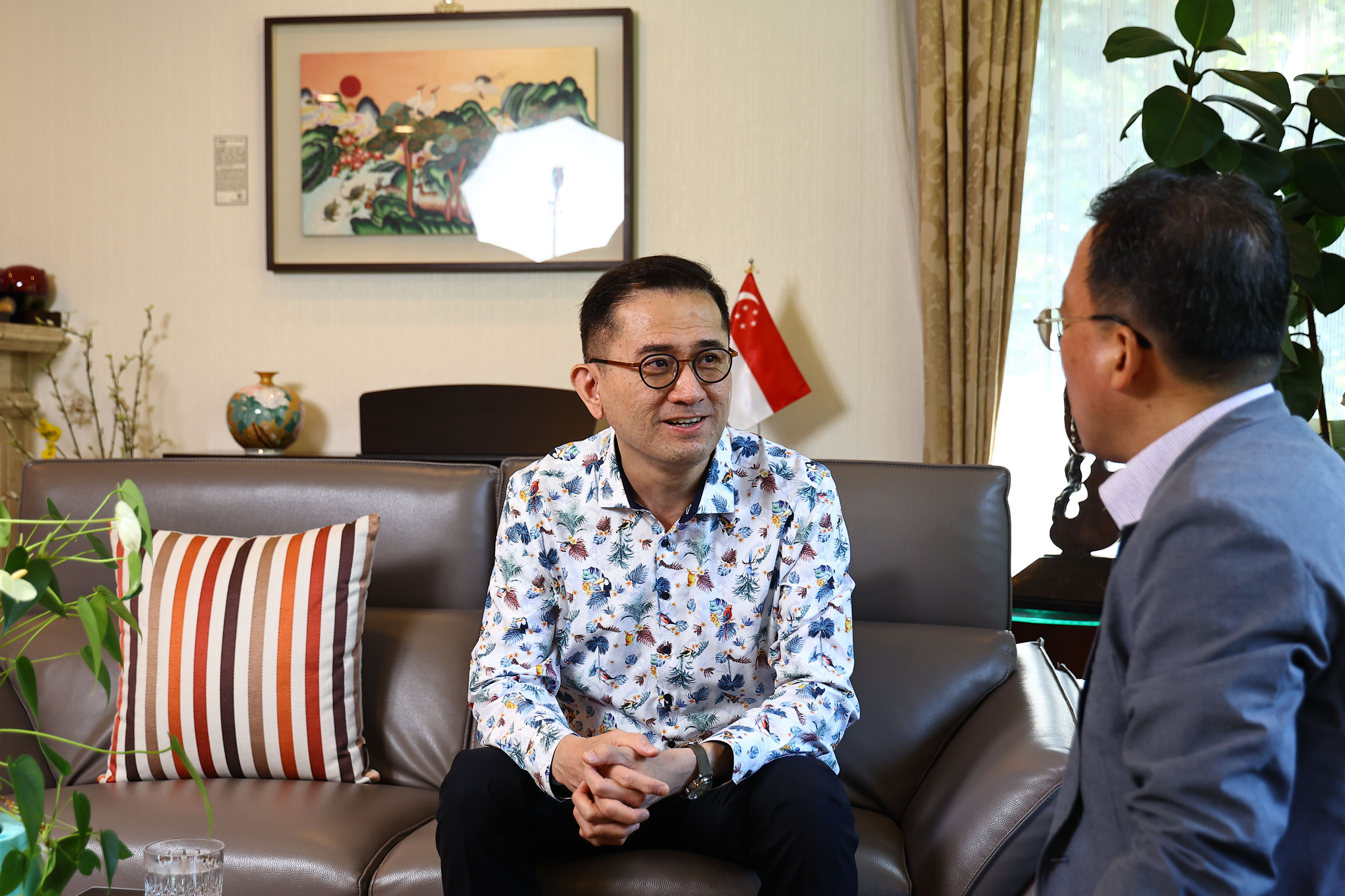Korea and Singapore at 50: Strengthening Bonds, Confronting Challenges, and Embracing a Shared Vision
Chang Se-jeong
The author is an editorial writer of the JoongAng Ilbo.

Singaporean Ambassador to Korea Eric Teo speaks during an interview with the JoongAng Ilbo at his residence in Seongbuk District, central Seoul, on June 11. [KIM JONG-HO]
Korea, Taiwan, Hong Kong and Singapore — once dubbed the “Four Asian Tigers” — all achieved rapid economic growth from the 1960s to the 1990s. Today, all four are developed economies, but Singapore’s trajectory has been especially striking.
According to the International Monetary Fund’s 2025 projections, Singapore’s gross national income per capita is expected to reach $92,932, nearly triple Korea’s $34,642. It also outpaces Hong Kong ($56,031) and Taiwan ($36,319), making Singapore one of the wealthiest countries in the world.
To understand the reasons behind this success, the JoongAng Ilbo spoke with Eric Teo, Singapore’s ambassador to Korea. Since his appointment in 2019, Teo has spent six years observing Korean society and deepening bilateral ties. Married to Kim Min-jae, a former Korean language lecturer, Teo is often referred to as “Korea’s son-in-law.”
Teo attributes Singapore’s rise to sound governance, long-term planning and investment in human capital. As a resource-scarce nation, Singapore focused on developing its people, building infrastructure and attracting global talent. It also embraced policy flexibility, adapting to shifting global conditions while maintaining social stability.
In 2018, Teo was closely involved in guiding North Korean leader Kim Jong-un during his landmark visit to Singapore for the U.S.-North Korea summit. Reflecting on both diplomacy and development, Teo emphasized the value of openness and strategic foresight.

Eric Teo, then Director-General for Northeast Asia at Singapore’s Ministry of Foreign Affairs, greets North Korean leader Kim Jong-un upon his arrival at a Singapore airport for the North Korea–U.S. summit on June 10, 2018. [SCREEN CAPTURE FROM YOUTUBE]
Q. You assumed the post as the Singapore Ambassador to Korea in August 2019. Please share with us your most memorable experience as a diplomat in Korea over the past 6 years.
A. It has been a most wonderful and enriching six years representing my country in Korea. Professionally, it has been very satisfying for me being in the front row seat witnessing the deepening and broadening of the very close and multifaceted Singapore-ROK cooperation. On a more personal level, my family and I also went on many driving trips to almost every part of Korea. We learned a lot from these trips and they were much better than reading a thousand books to understand Korea, its people, culture and history.
You have seen a wide range of Korean ways of thinking and behaving. I wonder, what stood out to you the most?
The vibrancy and the dynamism of Korea as well as the fact that modernity and traditions thrive side by side stood out the most for me. The five charming Josun Palaces in Seoul and the many very well-preserved heritage sites with long history standing alongside modern skyscrapers around many Korean cities, is an illustration that Korean people value their history and heritage even amid rapid economic development and urbanization.
You got the friendly nickname of 'Korea's son-in-law.' Could give me any special advice for the development of Korea?
My Korean-Singaporean wife Min-jae has been my “secret weapon” for the last 6 years. She was a big help to me, both in my work and private life. I am not in a position to provide advice and I think Korea's economic success was already a miracle through focusing, in the early stages, on the development of one of its few resources, namely its people who are hard-working and disciplined. Today, our two countries face similar challenges with low birthrates, aging populations and the need for educational reform to keep up with the times. Korea must decide the pace of opening up to accept more foreign talent and workers to sustain its economic activities for the future.

Singaporean Ambassador Eric Teo and his wife, Kim Min-jae, speak during an interview with the JoongAng Ilbo at the Singaporean ambassador’s residence in Seongbuk District, Seoul, on June 11. [KIM JONG-HO]
After our independence in 1965, Singapore was already plugged into the global system. Our pioneer leaders chose an export-led industrialization strategy at a time when many other newly independent countries with large domestic markets were adopting protectionist policies. Our government focused on attracting foreign investment and building infrastructure to support Singapore’s industrialization. At the same time, we placed emphasis on training and developing our human capital, which was our only resource. Like Korea, we have also pursued many free trade agreements (FTAs) to expand markets for our companies.
We are curious about the secret of Singapore's attracting the Asia-Pacific headquarters of more than 5,000 multinational companies. Which policy — such as tax and financial benefits — was most effective ?
Singapore is home to headquarters of businesses from the U.S., Europe and Asia across diverse industries, including manufacturing and services. Our stability, digital and physical connectivity, supportive policies and skilled work force are attractive for companies. As a gateway to the region, Singapore has emerged as a preferred location for MNCs to situate headquarter functions such as corporate strategy, finance, risk management, branding and marketing and R&D.
I wonder, how much domestic political stability is affecting the background of Singapore's stable growth?
Singapore has always valued long-term planning, sound governance and pragmatism. Our political stability has allowed us to plan ahead to identify problems early that could arise in the future and to adapt to changes or mitigate problems ahead of time. This is not something that we take for granted.
So what's the secret to Singapore's long-term political stability?
Rather than as an ambassador, let me answer this question more personally as a Singapore citizen looking at our politics. As a small, resource-limited state with independence thrust upon us in 1965, Singapore needed to have capable and dedicated leaders who put Singapore’s national interests before their own. Good governance, including having capable and honest leaders, is a key tenet of our continued survival and success as a small nation.
In the age of AI, in which industries is Singapore trying to continue its economic development?
While the global economic environment is expected to be more complex and challenging, Singapore aims to grow our economy by around 2 to 3% each year on average over the next decade. To achieve this, Singapore is doubling down on key economic sectors across manufacturing and services and developing new growth areas such as precision medicine as well as the green and digital economy sectors. Through enablers such as AI, innovation across these industries can enhance productivity, drive business transformation, and create new products and solutions. Singapore is working with 100 leading corporates to accelerate their AI adoption by establishing AI Centers of Excellence (AI CoE), with 26 AI CoEs set up in 2024.
What strategy is Singapore using between the Unites States and China to protect its national interests?
We have always adopted a principled and consistent approach to foreign policy that serves Singapore’s long-term national interests. So we are neither anti-U.S nor anti-China, but pro-Singapore and pro-Singaporeans in line with our long-term national interests. As a small nation, we firmly believe in a rules-based multilateral order that upholds international law and the importance of the UN Charter. This will allow countries big and small to compete at a level playing field. With the United States and China now locked in intense and sharpening strategic competition across multiple domains, communication between both sides is vital.

Singaporean Ambassador Eric Teo speaks during an interview with the JoongAng Ilbo at the Singaporean ambassador’s residence in Seongbuk District, Seoul, on June 11. [KIM JONG-HO]
The United States is an ally country of Korea, while China is a close neighbor. Hence, it is unavoidable that Korea’s interests would be intertwined with both the United States and China, and that Korea would have to skillfully manage its relations with both major powers. It is inevitable that Korea would have dealings with both the United States and China, in accordance with the priorities and complementarities of its respective bilateral relations with the two powers.
The 8th of August marks the 50th anniversary of the establishment of diplomatic relations between Korea and Singapore. How do you see the two countries’ cooperation evolving over the next 50 years?
Singapore and Korea are like-minded partners because we share very similar developmental journeys achieving economic success without natural resources but focusing on developing our people. We also share common values such as promoting and upholding a rules-based multilateral order, open and free trade, and respect for international law. Our collaboration is now a multifaceted one extending beyond trade and investments into new and emerging areas such as energy and sustainability, digital economy, AI and startups, food security, cybersecurity and many other areas. As our two countries work toward upgrading our bilateral relations to a Strategic Partnership this year, we can expect our collaboration to further deepen in the years ahead.
Post a Comment for "Korea and Singapore at 50: Strengthening Bonds, Confronting Challenges, and Embracing a Shared Vision"
Post a Comment